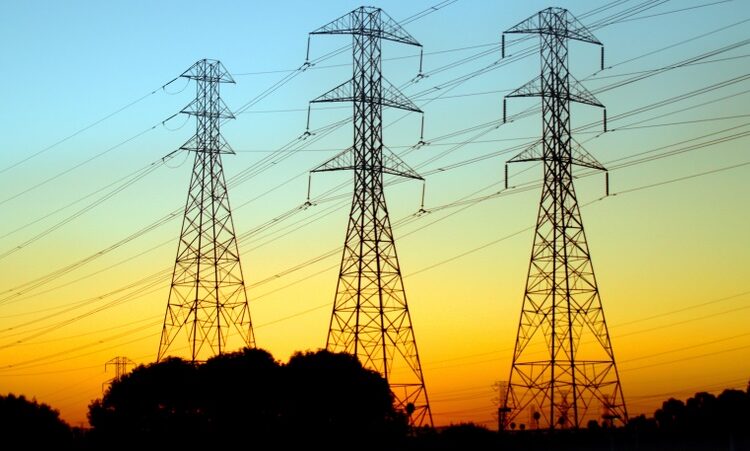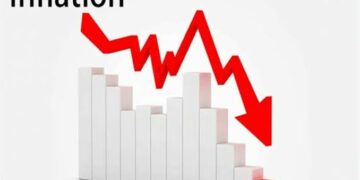Electricity consumers in the lower bands across Nigeria have accused the power Distribution Companies (DisCos) of neglect and plunging them into constant darkness.
They alleged that, unlike the situation before those in Band ‘A’ were placed on higher rates, they had access to power supply for some hours daily. However, they lamented that the situation has worsened as the DisCos have shifted focus to premium customers in their quest to meet the minimum 20-hour daily supply stipulated by the Nigerian Electricity Regulatory Commission (NERC) under the current regime.
The complaints are from Nigerians on Bands B and C who say they are increasingly being left in the dark.
This comes as the Minister of Power Adebayo Adelabu recently hinted at the federal government’s plan to adopt a cost-reflective approach to electricity pricing for electricity consumers.
He declared that electricity subsidies are no longer sustainable, given a crippling ₦4 trillion debt in the power generation sector.
The minister, who made the announcement during high-level talks with Generation Companies (GenCos) in Abuja, stressed the urgent need to end subsidies to stabilise the sector and encourage full liberalisation.
Adelabu disclosed that the government currently owes about $857 million to power generation companies and an additional $1.3 billion to gas suppliers, with the electricity subsidy budget for 2024 set at ₦450 billion—far below the estimated ₦2.9 trillion actual cost of subsidies this year.
He emphasised that while targeted subsidies would continue for economically disadvantaged Nigerians, the broader subsidy regime is financially unsustainable for the economy.
The proposed tariff increase comes barely a year after the government raised rates for all users, with those on Band A receiving a 230.8 per cent rise in tariffs.
However, shortly afterwards, Band A users also complained about the service they received from DisCos, particularly the persistent power outages despite high tariffs, saying they were not receiving the promised supply hours.
In separate interviews with LEADERSHIP Weekend, aggrieved Band B and C users warned against the proposed increase, saying they were already experiencing unacceptable outages, even after paying their mostly estimated bills.
In Katsina State, some customers said they were considering switching to solar energy as a more sustainable and cost-effective alternative.
The residents said they were frustrated by estimated billing from the Kaduna Electric Company (KECO), adding that they were effectively paying for darkness.
A resident of the Kwado community in Katsina, Sarah Joshua, expressed frustration at being charged ₦13,000 monthly for electricity, even though her area faced unending outages due to a faulty transformer.
Mustapha Sani, a small-scale vendor of cold drinks, said his shop had not had electricity for days, yet he still received estimated bills of ₦10,000 monthly.
“We use over 20 litres of diesel daily to keep the drinks cold and run our business,” he lamented.
In Ilorin, Kwara State, electricity consumers appealed to the Federal Government not to implement further increments in electricity bills.
They admitted enjoying lower tariffs but lamented that the power supply was highly erratic.
In most households in downtown Ilorin, consumers received monthly bills of between ₦2,000 and ₦3,000, but power barely lasted three hours whenever it was supplied.
In Osun State, consumers outside Band A claimed they were facing the worst period of erratic power supply.
Mr Lekan Adekunle, a resident of Owode Ede, said that despite their transformer being in good condition, they received less than four hours of electricity daily, and only at night.
Adekunle, a welder, said he had turned to farming as he searched for a location with reliable power supply. He added that a ₦5,000 subscription on his prepaid meter used to last three to four months.
While calling for a stable power supply, he recommended only a marginal tariff increase to avoid putting additional pressure on the poor.
Mrs Mujidat Hassan of Woru, Osogbo, said the erratic power supply had reduced her to merely existing rather than truly living, with her refrigeration business having ground to a halt.
She said she would be happy if DisCos could provide power at a reasonable cost.
In Nasarawa State, respondents expressed anger at the proposed hike, calling it “irrational and callous”.
Mr Suleiman Abubakar, a private sector employee in Kofar Maina, Lafia, said the planned increase reflected the government’s insensitivity to the plight of Nigerians struggling to provide for their families.
“On average, I pay at least ₦15,000 monthly, which is about 10 per cent of my salary—and I’m on a prepaid meter. Those without meters pay even more,” he said.
Mr Abdullahi Doma, a technician in Bukansidi, Lafia, added: “I pay ₦30,000 to ₦50,000 monthly, yet power lasts only five to six hours. After that, we wait another two days before seeing light again. The government must improve supply and hold providers accountable.”
For Miss Esther, higher tariffs had not brought improved service.
“I pay ₦63 per kilowatt on a prepaid meter but can’t even say how many hours of electricity I get in a day. Maybe less than three hours,” she said.
In Akwa Ibom State, residents decried the “excruciating pains” caused by the Port Harcourt Electricity Distribution Company (PHEDC), which oversees various bands.
Despite poor distribution, higher tariffs have worsened the burden. Salon owners, cassava and palm oil processors, and gin brewers now transfer costs to customers.
“I pay between ₦80,000 and ₦87,000 per month,” said Madam Affiong, popularly called Ekamba Mma, an 80-year-old landlady in Uyo.
She said PHEDC refused to replace her faulty meter, resorting to estimated bills.
In Enugu, many Band B residents urged the government not to raise tariffs further.
A resident of Obiagu, Mr Ignatius Okonkwo, said they were already paying ₦60 to ₦70 per unit.
Mrs Ifeoma Obigeri of Maryland Estate, on Band A, also pleaded with the government not to “add anything to the present tariffs”.
In Ondo State, some consumers said they were still struggling to pay current rates.
Mr Ayo Aroloye, a civil servant, described the tariffs as excessive and warned that any increment would push some into corruption.
“How much is our salary? Some Band B consumers in my area pay ₦15,000 to ₦20,000 monthly. Another increment will only worsen things,” he said.
A farmer, Akinbowale Ayodele, appealed to the government to stop considering any increase.
“Governments all over the world subsidise essential services. Our leaders must show compassion. I pay between ₦10,000 and ₦23,000 monthly and don’t even have a meter,” he added.
A widow, Mrs Anike Babalola, said, “We just got electricity back after two months, thanks to community efforts to fix a stolen transformer. Sometimes we pay bills without any supply. That’s not fair.”
In Edo State, Mr Solomon Okoduwa, a social worker in Obagie, Ikpoba Okha, said he paid ₦10,000 monthly in estimated bills but only got four hours of electricity per day—often at low voltage.
“Sometimes we go two days without power. We’re ready to pay for electricity, but it must be available.
It’s affecting our businesses,” he said.
In Abakaliki, the Ebonyi State capital, residents described the planned increase as anti-people and an attempt to deepen poverty.
Customers with prepaid meters outside Band A said they spent ₦6,000 to ₦10,000 weekly, while those on estimated billing paid ₦25,000 per flat and ₦60,000 per duplex.
Mrs Esther Ewa, a business owner in Kpirikpiri, said though they enjoyed 15 hours of supply daily, the bills were too high.
We’re Constrained by Limited Supplies from GenCos, Say DisCos
When contacted about the claims of discrimination according to band, spokespersons for Ikeja, Eko and
Kano DisCos denied deliberately neglecting customers.
Speaking to our correspondent, Babatunde Lasaki, spokesperson for Eko DisCo, blamed the situation on insufficient power supply.
“We have continuously upgraded our infrastructure to reduce downtime and improve efficiency, but we rarely get enough power. We’ve never received more than 513 Megawatts, yet 1,000 Megawatts would be needed for sustainable supply,” Lasaki said.
He added that, by law, all customers are to be served based on the banding structure, but due to limited supply, service depends on availability.
“It is our desire to migrate all customers to Band A, but the supply capacity is not yet there,” he said.
Kingsley Okotie, spokesperson for Ikeja Electric, stated that the DisCos do not discriminate but are constrained by the Transmission Company of Nigeria’s (TCN) capacity.
Sani Baba Sani, spokesperson for Kano Electricity Distribution Company, said the allegations were unfounded, adding that the company prioritises social service providers like hospitals and schools to ensure uninterrupted service.





